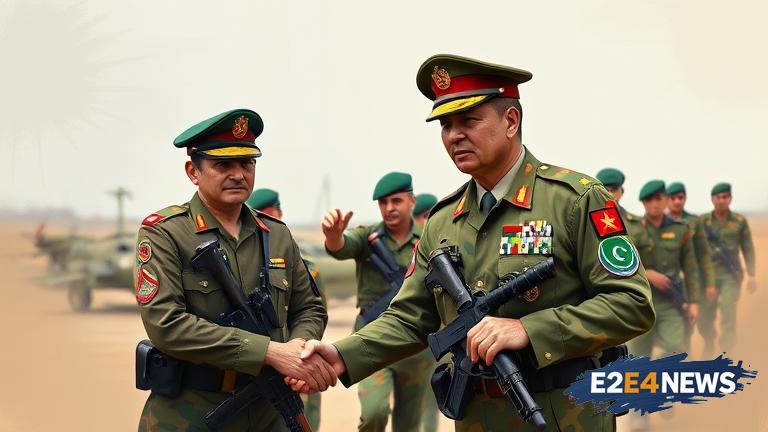Field Marshal Asim Munir, the Chief of Army Staff of Pakistan, has underscored the importance of fostering deeper military cooperation with other nations to effectively counter the rising hybrid threats. In a recent address, he highlighted the evolving nature of modern warfare, which now encompasses a broad spectrum of threats including conventional, non-conventional, and cyber warfare. The Field Marshal emphasized that the contemporary security landscape is characterized by an increased reliance on technology, which has transformed the way wars are fought and won. He noted that the emergence of hybrid warfare has introduced new challenges for military forces worldwide, requiring them to adapt and innovate to stay ahead of the threats. Asim Munir stressed that Pakistan is committed to enhancing its military capabilities to address these emerging challenges, with a focus on developing its cyber warfare and electronic warfare capabilities. He also emphasized the need for international cooperation to counter the threats posed by terrorism, extremism, and separatism. The Field Marshal’s remarks come at a time when Pakistan is seeking to strengthen its military ties with other countries, including China, Russia, and the United States. Pakistan has been engaged in a protracted struggle against terrorism and extremism, and has made significant progress in recent years in restoring peace and stability to its troubled regions. However, the country still faces numerous security challenges, including the threat posed by Indian-sponsored terrorism in Kashmir. Asim Munir’s emphasis on deeper military cooperation reflects Pakistan’s desire to build a strong and effective security partnership with other nations to address these challenges. The Field Marshal’s remarks have been welcomed by military analysts, who believe that enhanced cooperation between Pakistan and other countries can help to promote regional stability and security. They note that Pakistan has a long history of military cooperation with other nations, and has played a key role in promoting peace and stability in the region. The analysts also believe that Pakistan’s military modernization efforts, including its development of cyber warfare and electronic warfare capabilities, will help to enhance its ability to counter emerging security threats. In addition to its military modernization efforts, Pakistan is also seeking to promote economic cooperation with other nations, including China, which is investing heavily in the China-Pakistan Economic Corridor (CPEC). The CPEC is a flagship project of China’s Belt and Road Initiative (BRI), and is aimed at promoting economic development and cooperation between China and Pakistan. The project has the potential to transform Pakistan’s economy, and to promote regional stability and security. However, the project has also been the subject of controversy, with some critics arguing that it will increase Pakistan’s dependence on China and undermine its sovereignty. Despite these concerns, the CPEC is widely seen as a key component of Pakistan’s economic development strategy, and is expected to play a major role in promoting the country’s economic growth and stability. In conclusion, Field Marshal Asim Munir’s emphasis on deeper military cooperation reflects Pakistan’s desire to build a strong and effective security partnership with other nations to address the emerging security challenges. The country’s military modernization efforts, including its development of cyber warfare and electronic warfare capabilities, will help to enhance its ability to counter these threats. The CPEC is also expected to play a major role in promoting Pakistan’s economic development and stability, and in enhancing regional security and cooperation. Overall, Pakistan’s efforts to promote military cooperation and economic development are aimed at promoting regional stability and security, and at addressing the emerging security challenges posed by hybrid threats.
